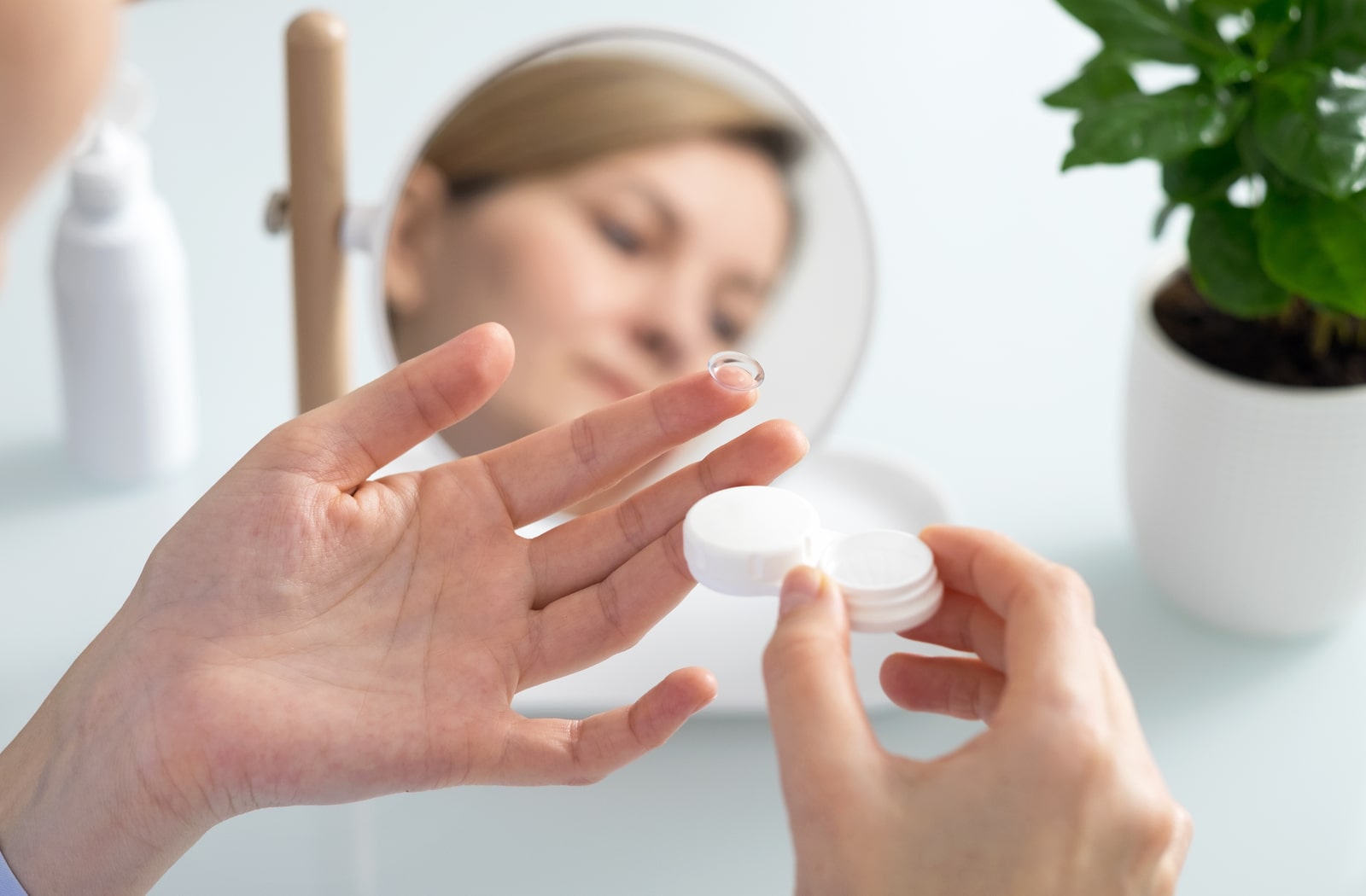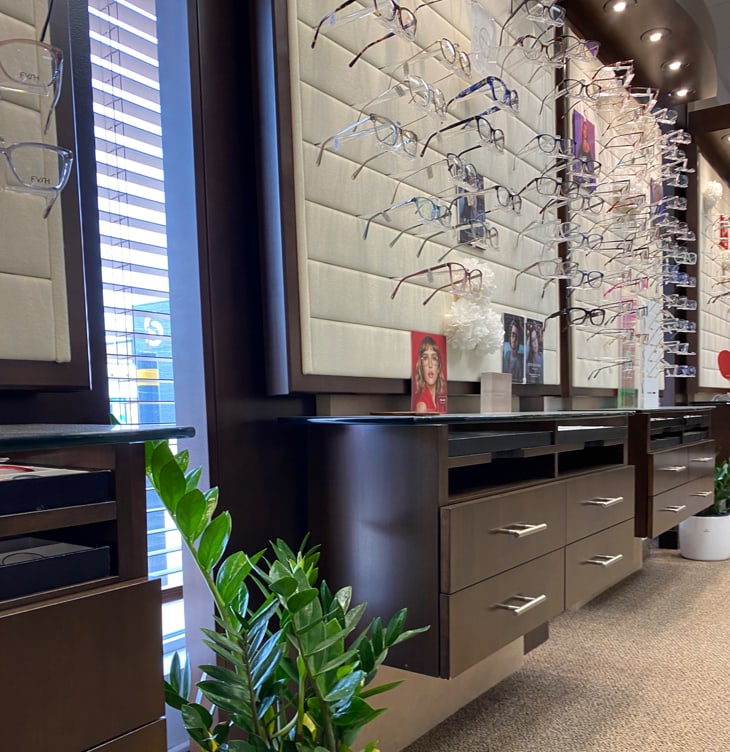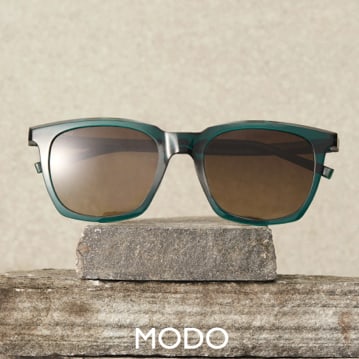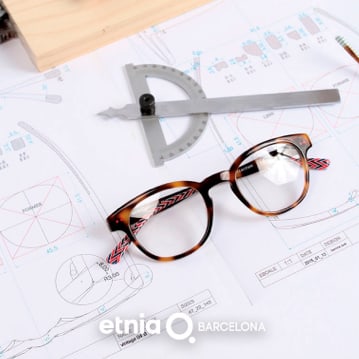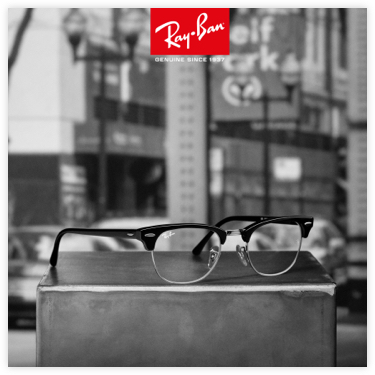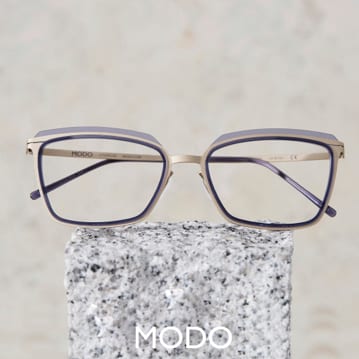Dry eyes are a prevalent condition that affects many Canadians. In many cases, wearing contacts can be an additional irritant that increases dry eye symptoms if you’re already prone to those itchy, burning eyes.
If you’re experiencing any unusual and uncomfortable symptoms when wearing your contact lenses, it’s a good idea to book an exam with your eye doctor to ensure nothing else is happening with your eyes. This is especially true if you’ve never really had these symptoms previously.
Reducing Dry Eye Symptoms While Wearing Contacts
Contact lenses can aggravate existing dry eye syndrome. But in other cases, it can cause dry eye symptoms for the same reasons. Below are 6 different things you can do to help alleviate or prevent the symptoms.
Good Hygiene
Because you are using your fingers to put contact lenses in and take them out, it’s critical that you maintain good hygiene. This includes washing your hands before touching the lenses or your face and cleaning the areas around your eyes.
In fact, cleaning the eyelids before inserting CLs with lid wipes such as NACLINO, is considered best practice; not only does it prevent bacteria from going into your eyes, it also prevents blepharitis, a frequent inflammation of the lid margin that can cause dry eye syndrome.
Don’t Try and Stretch Your Contact Lense Life
When manufacturers produce contact lenses, they give them a specific unopened shelf life. But they also design them to last a certain length of time once they are open. For example, some lenses are made to wear for one day and others to last a month.
Trying to make them last longer than they are supposed to increases the chance they will irritate your eyes and cause uncomfortable dry eye symptoms. In addition, you open up your eyes to getting eye infections too.
Avoid Sleeping in Your Contacts
Unless they are specifically designed and approved for overnight wear, you should always avoid wearing your contact lenses while you sleep. This prevents an adequate amount of oxygen from penetrating the lens into your eye and accelerate the dehydration of the CLs. This lack of oxygen, combine with an increased of friction between the lens and your cornea, could lead to eye infections and dry eye symptoms.
Always Use Fresh Contact Solution
When you put your contacts in your eyes, empty the contact solution from the container and let it dry throughout the day. And then, when you store them for the night, use a fresh solution to ensure it does its job cleaning the contact lenses to prevent irritating contaminants from ending up in your eye. Many solutions also have rewetting agents to enhance the comfort and keep the CLs at the desired hydration level.
Let Your Eyes Breath
If possible, take your contact lenses out each day for a couple of hours to allow your eyes to breathe and the natural tear film to coat your eye again.
Contact-Friendly Artificial Tears
If you have persistent dry eye symptoms while wearing contacts, an artificial tear that is safe for use with contact lenses is a viable option. Remember that only certain eye drops can be used with contact lenses, and they often differ between soft and rigid gas permeable (RGP) lenses.
Best Contact Lenses for Dry Eyes
After you’ve received a contact lens fitting exam, your eye doctor can recommend the best options for preventing or minimizing dry eye symptoms. Here are some of the best contact lenses for people with dry eyes.
Daily Disposable Contact Lenses
Dailies are considered by many eye doctors the best option for individuals who suffer from chronic dry eye symptoms. Because you’re using a fresh contact lens daily, it eliminates the potentially irritating protein buildup on the lens. It also minimizes the chances of introducing germs from improper storage and handling. All to reduce triggers of inflammation that is part of dry eye syndrome.
Soft Contact Lenses
If you prefer something you’re not throwing out every day, your eye doctor will likely recommend a different soft contact lens. Other options are available that last anywhere from two weeks to a month.
Scleral Lenses
Scleral lenses are a common option for someone who wants to wear contacts but has an irregular-shaped cornea. However, they can be an excellent choice for someone with severe dry eye too. As their name suggests, these lenses rest on your eye’s sclera (the white part) and don’t actually rest directly on the cornea. They are filled with preservatives-free solutions, which minimizes their ability to cause dry eye symptoms.
Brands and Technology
In addition to specific types of contact lenses to help with dry eye symptoms, you’ll also want to ensure you’re purchasing a reputable brand that uses high-quality materials in its products. Your doctor is there to discuss the latest technology on the market so you can consider the many options of glasses-free living.
Some of the best brands in the industry include:
- Acuvue
- Alcon
- Bausch + Lomb
- Blanchard
- CooperVision
Find Out More about Dry Eyes With Contacts
Dry eye is common, but that doesn’t mean you must suffer through it while wearing contacts. There are options like eye drops or different types of lenses to increase comfort available.If you’re struggling with dry eyes while wearing your contact lenses, give us a shout today. The helpful staff here at Old South Optometry is happy to answer your questions and book you for a contact lens fitting exam at a convenient time.


